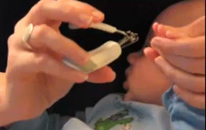Teaching Kids to Tell the Truth
Why White Lies Can Backfire
Teaching kids about telling the truth is an important life lesson. Your approach can determine how motivated your kids are to be honest. Younger kids are more likely to tell the truth because they want to please you. Older ones understand that it’s the right thing to do.
Kids are less motivated by the threat of getting punished. In fact, threats can have just the opposite effect, making them less likely to tell the truth because they fear the punishment. Behavior often depends on age. Kids under 6 may not grasp the concept of lying. But children over 6 know the difference, and know when they’re being deceitful.
Understand what might prompt kids to fib. They may be under pressure and fail to meet overwhelming demands, such as achievement in school, or be trying to save face and avoid disappointing you with behavior they’ve been taught is wrong. See if the circumstances that prompted the lying need to be changed.
How you deal with a lie matters. Carrying out threats doesn’t seem to help with future behavior. Rather, explain why truthfulness between parents and children is key to a good relationship and that they’ll be in far less trouble if they tell the truth when there’s a problem.
Be aware that telling white lies or stretching the truth yourself sends kids a mixed message and could undermine your lesson in honesty.






